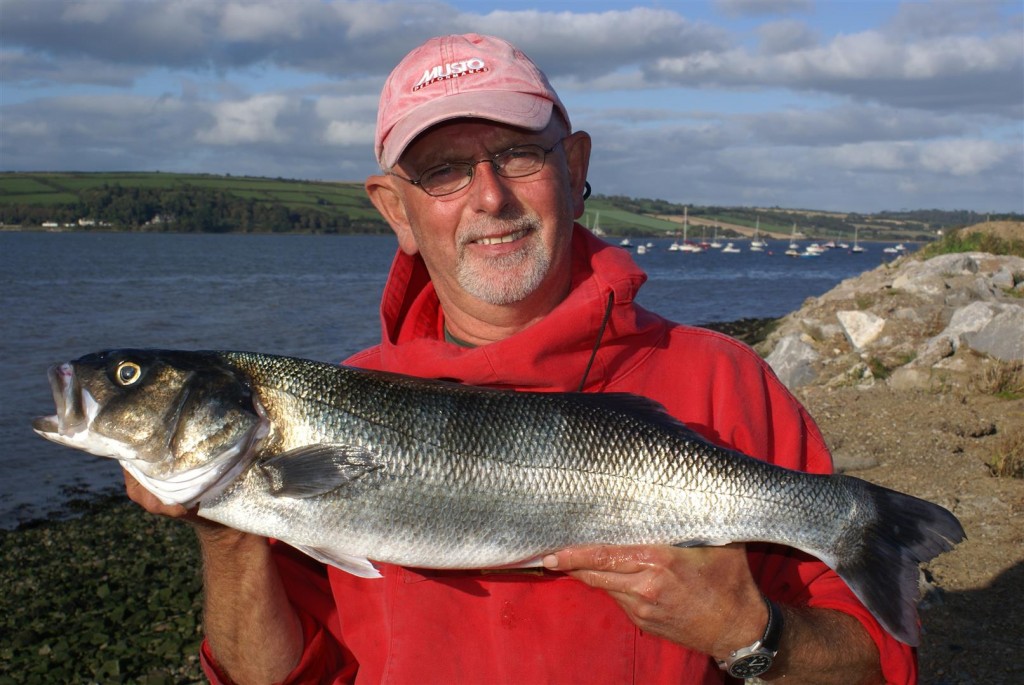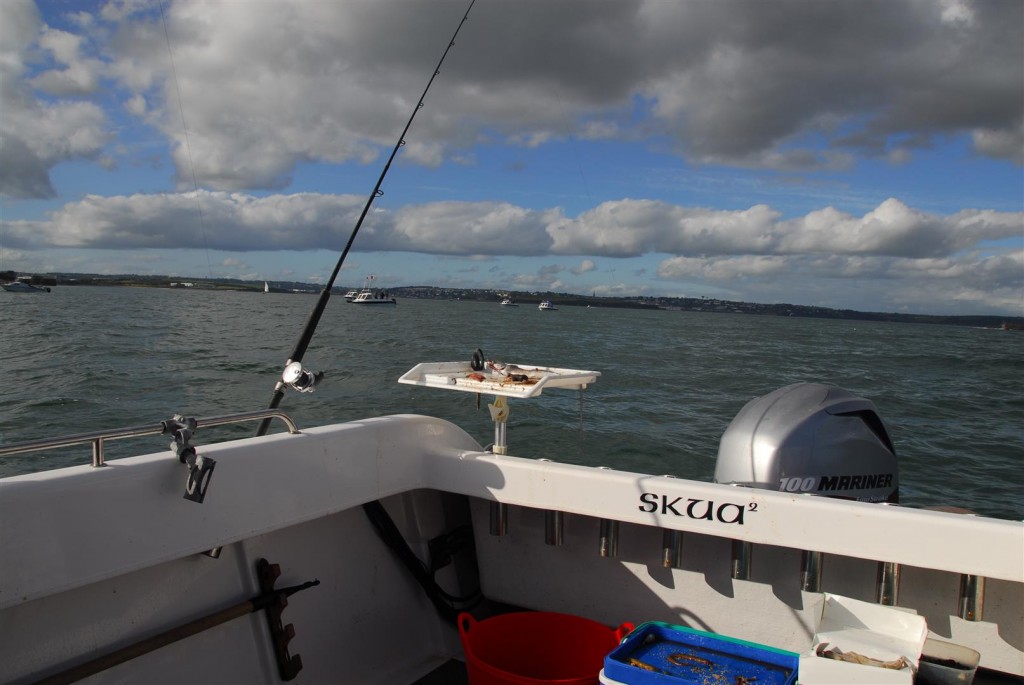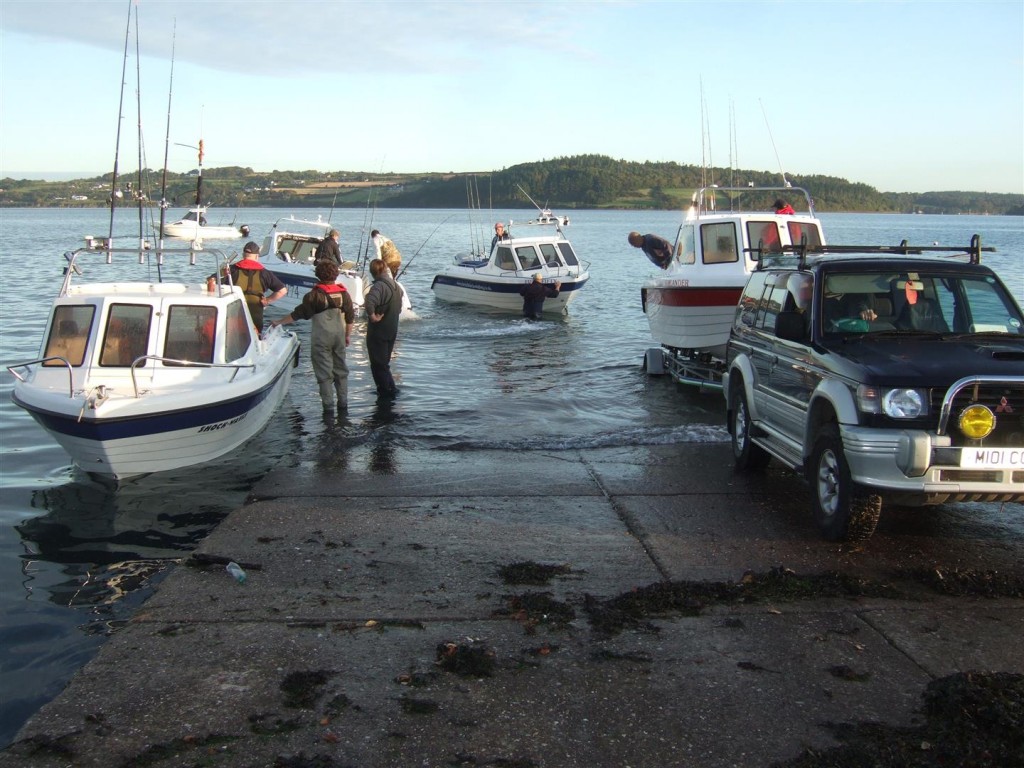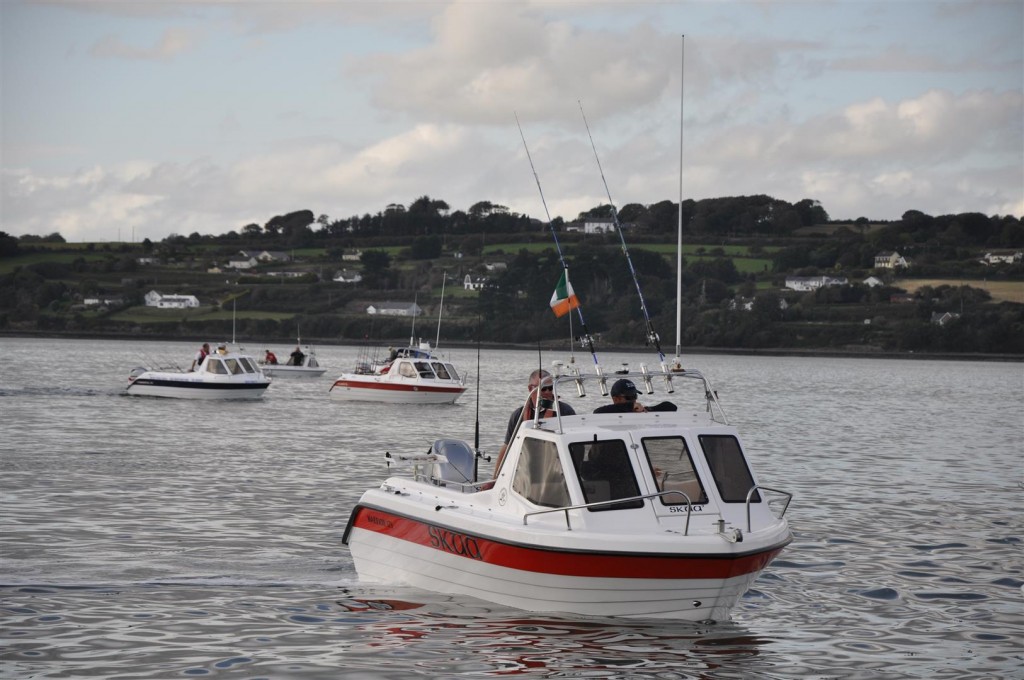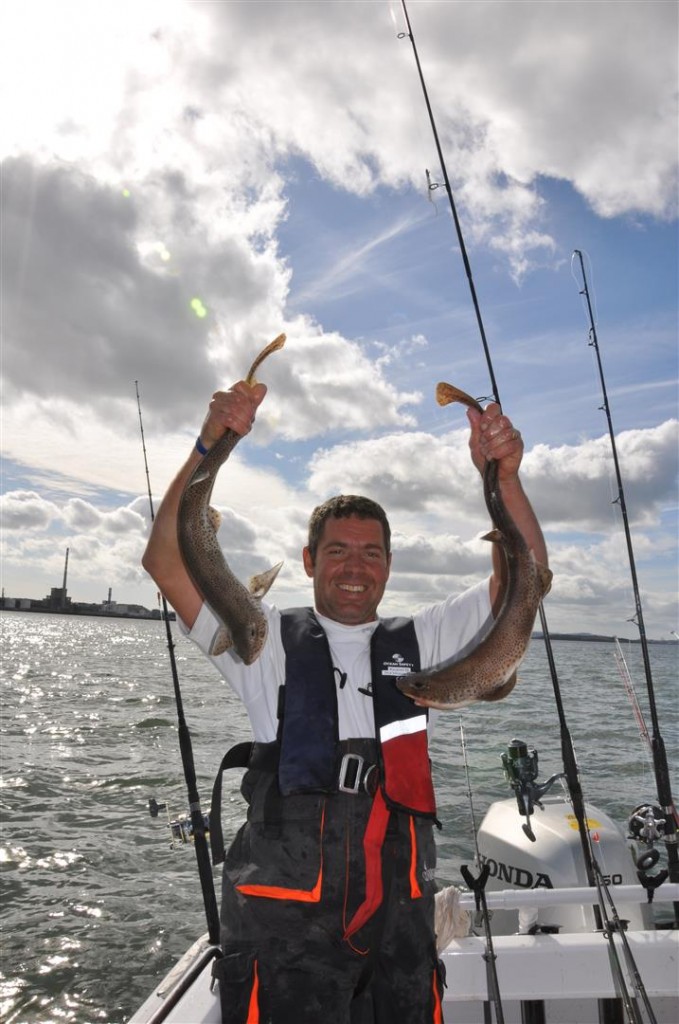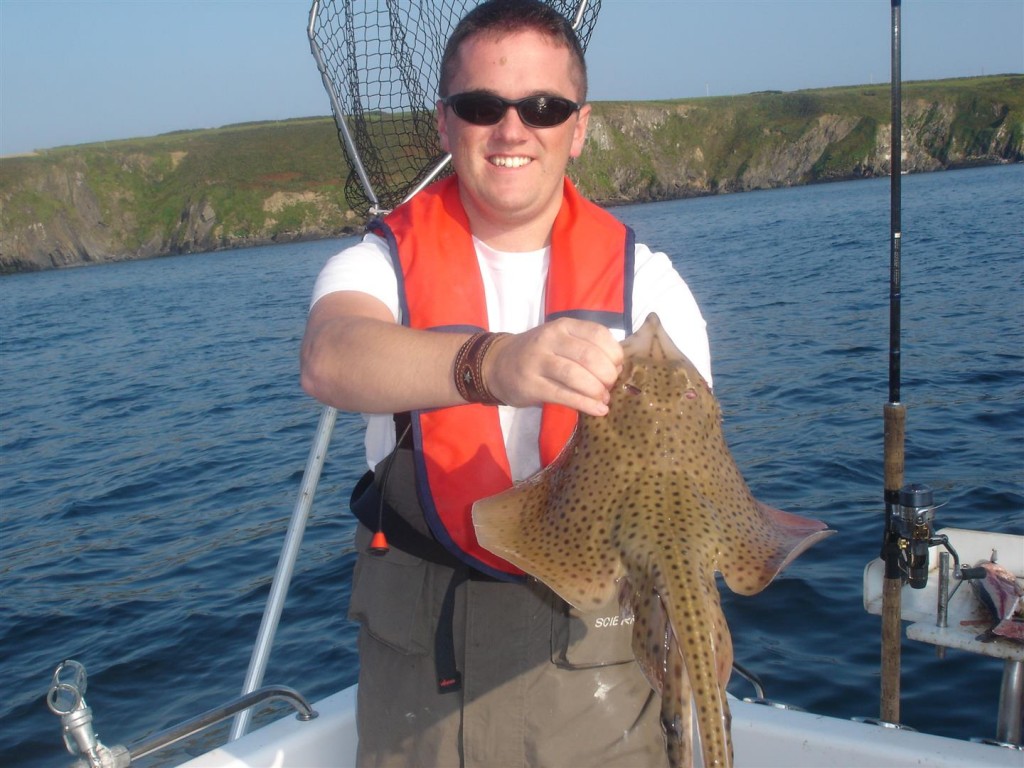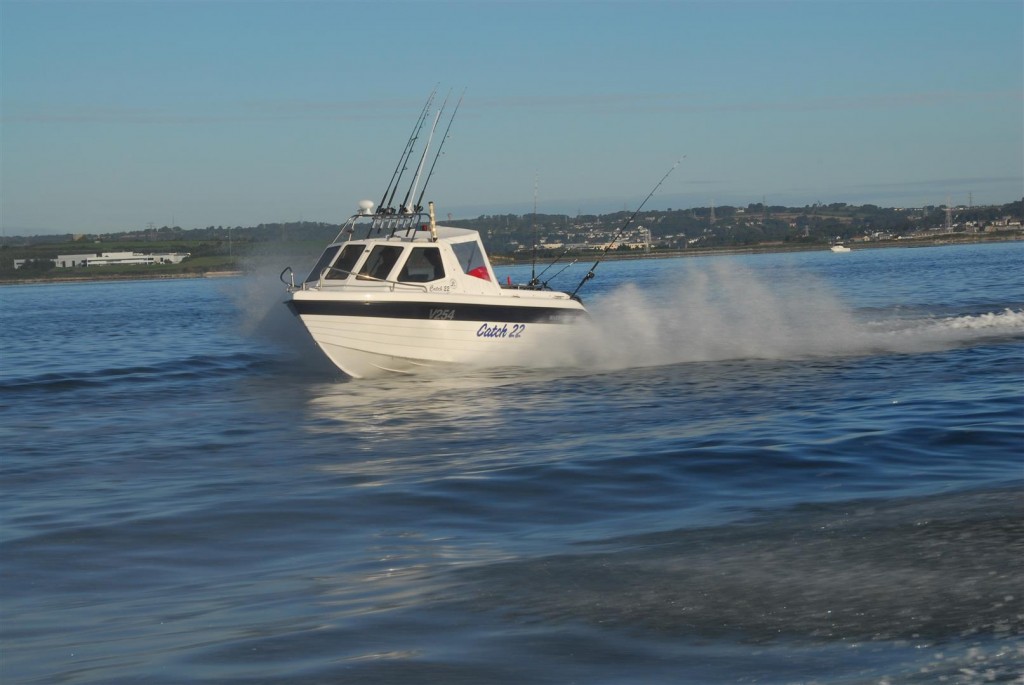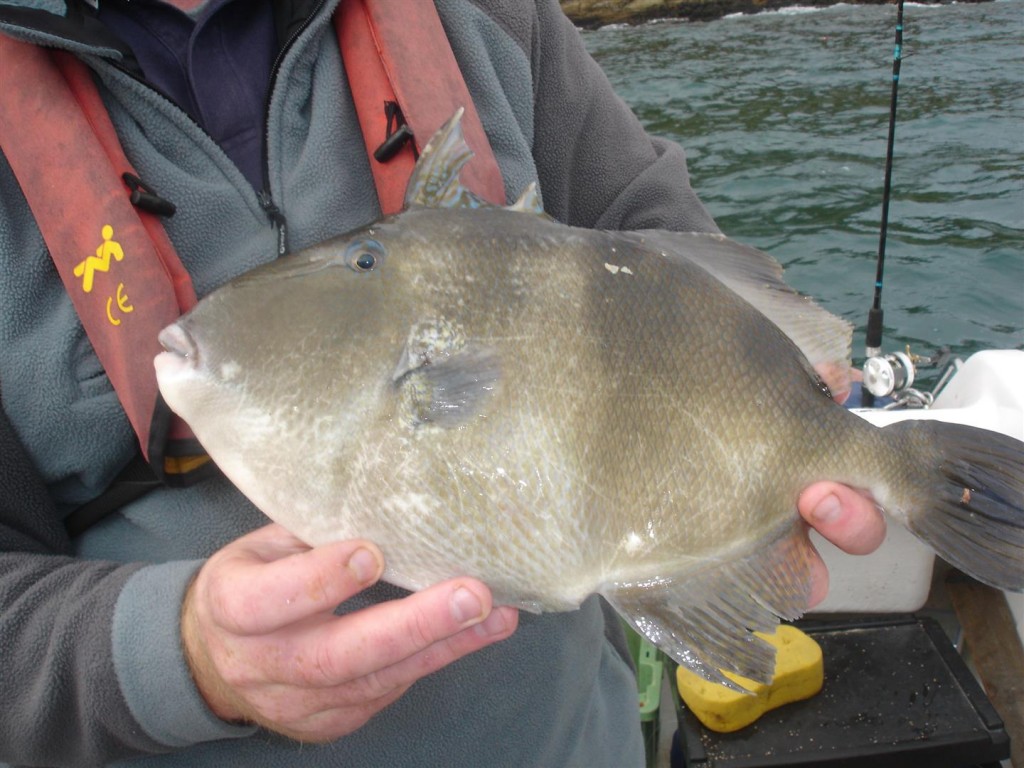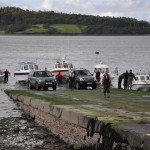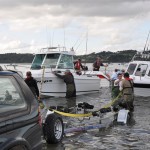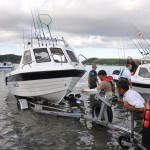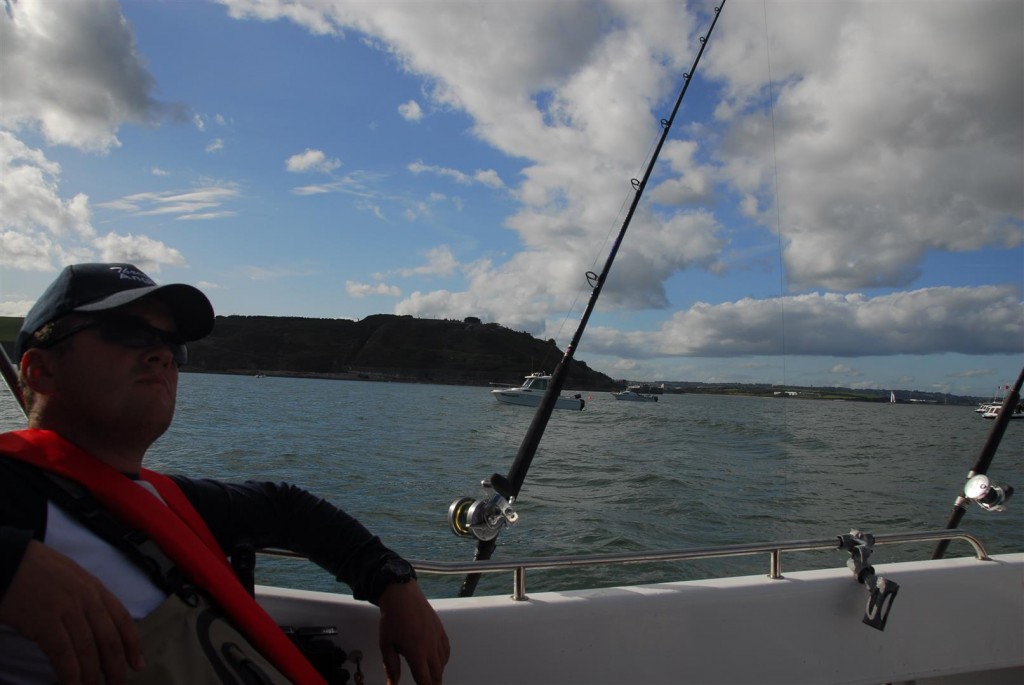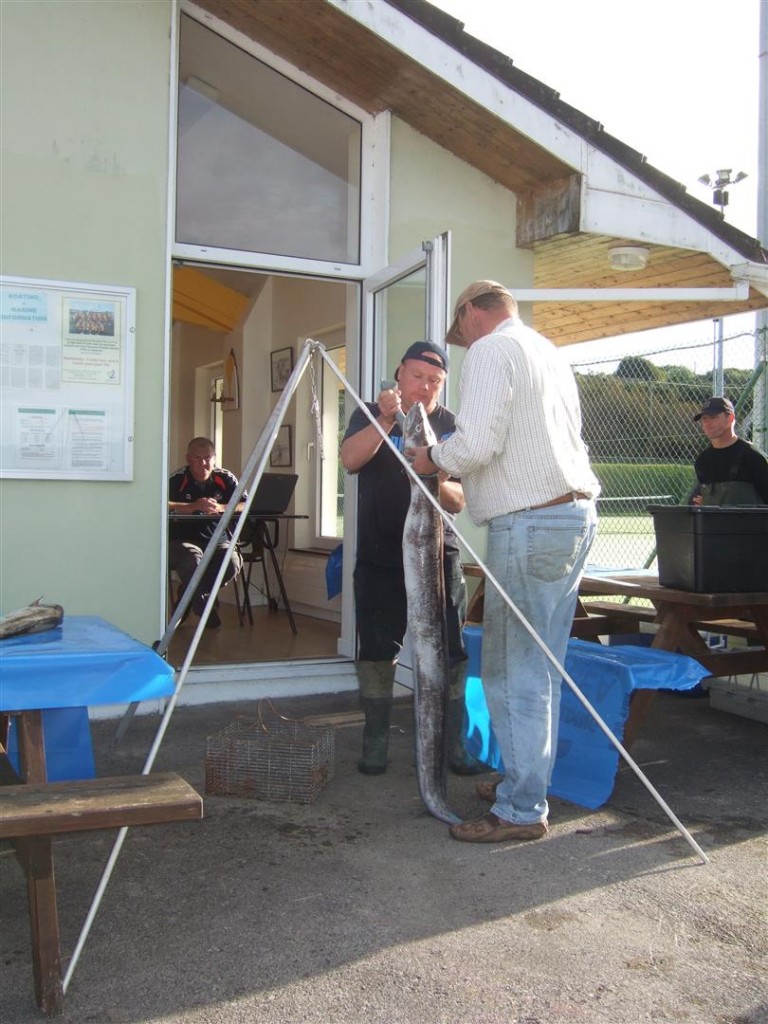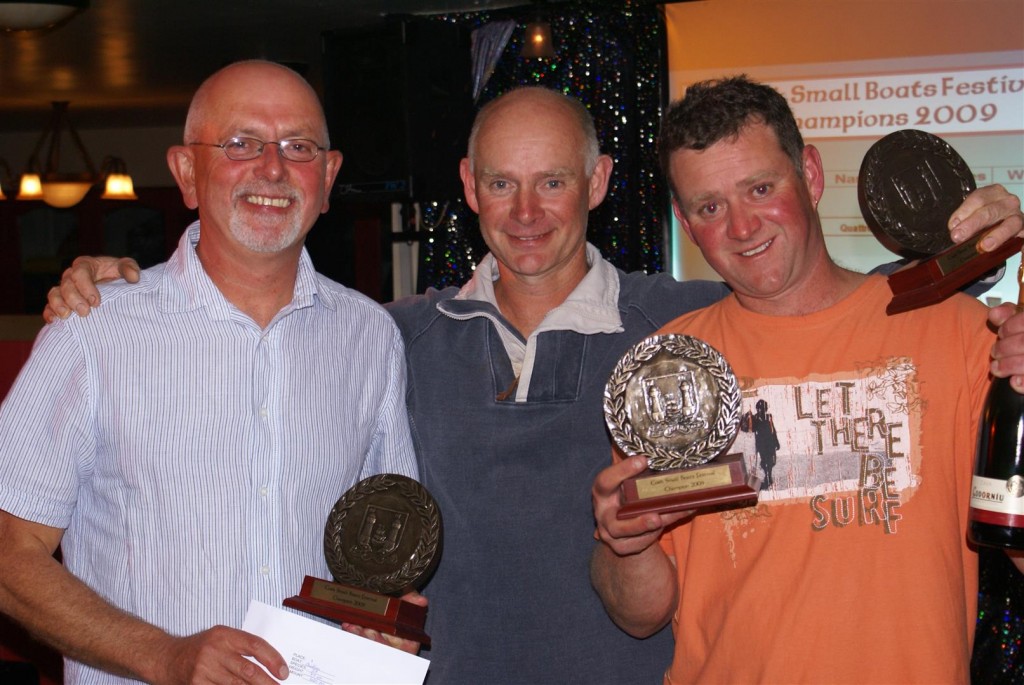September is Cork Small Boats Festival month. To give you a flavor we reproduce this feature from Irish Angler Magazine in 2009...
(Click on any picture to enlarge)
Jim Clohessy looks at the changing face of dinghy angling – there is no better place to see the effects of change then at the Cork Small Boats Festival – Fifteen years of dinghy angling!
September is one of the busiest months in the dinghy anglers’ calendar. It is probably the most productive month in fishing terms once the weather plays ball. It is also the month when the dinghy population on the southern coasts increases dramatically. Two of the most incredible gatherings of small boats in the country take place in Cork and Wexford as the days begin to shorten and the leaves begin to turn. The Cork and Rosslare small boats festivals are two events that really should tweak the interest of every dinghy skipper in the country.
There are a hardy few skippers who fish both competitions, two weeks of pure angling bliss! As match organisers of the Cork event there is just too much to be done close to the event to even contemplate the trip to Rosslare so Team SKUA has to make do with our annual fix in Cork. Many of the competitors arrive in Cork the week before the event. Practice makes perfect! Many skippers wonder why the event is not won by a local boat each year. Surely a Cork-based boat has a huge advantage over their rest of Ireland and UK based counterparts? The results would suggest otherwise – in fifteen years only one Irish boat has ever won the event!
Traditionally the Cork event has attracted more Irish boats than the Rosslare event. I think this is largely due to a strong Irish interest in the Cork event from the outset. The Cork event owes its heritage to some anglers wanting to move to a venue that is not as weather sensitive as Kilmore Quay in Wexford. From then on there have been two events on the calendar that in the whole complement each other. Over the last couple of years there has been an increase in the amount of Irish boats entering the Rosslare event and they have been doing very well too – an Irish boat has won the event two years running. Still I suppose it was due; the event will be twenty five years young in 2010.
Much has changed in the angling world in fifteen years, in fact the changes have been massive and it reflects the boom in technology that has occurred in every walk of life. Fifteen years ago an uptide rod was revolutionary. Gps and fishfinders were just becoming affordable to the masses. I was happily fishing from an open seventeen foot O’Sullivan “Skelig” and was amazed to see the UK boats arriving- fast boats with forty or fifty horse-power engines mounted on the back of fast hulls like the Orkney Fastliner. That first year a few of us banded together and entered the festival. We fished from a mates Fastliner, the fastest boat in the club, well it did have a forty horse power engine and it could just about do twenty two knots if there wasn’t too much gear on board! We had neither GPS nor sounder. We didn’t even have a VHF radio! We located ground by way of land marks and struggled to catch anything within Cork Harbour itself. We still had a ball and it started a long learning curve that had us doing our best to compete with the best over the years.
The Cork fleet reflects the changes in boat design over recent years. Initially the Orkeny Fastliner was the boat of choice. Sea Hogs and Pilots were the order of the day. Warrior 165’s were hugely popular but were not seen by skippers as a creditable replacement for the 19’ Fastliner. The Warrior 175 appeared at the beginning of the new millennium and the design has become the most popular boat in the fleet. The change in engine technology and size has been dramatic as well. In the mid-nineties four-stroke engines were the exception. Now the majority of boats are powered by four strokes. Gone are the forty and fifty horse power machines replaced by seventy fives on the sixteen foot boats with one hundred and fifty horse lumps starting to appear on Warrior 175’s! It is not uncommon to see dinghies speeding around at over thirty knots. Now every boat has the essential safety, navigation and fish finding aids. It is not unusual to see boats with a couple of GPS units and a pair of sounders coupled with AIS and radar systems. ‘Tis a wonder guys are not getting fried there are so many “waves” around!
The changes in fifteen years of rod design are as dramatic. Where the mainstay for many was a thirty pound class rod of around seven feet it is now more than likely a ten foot multi-tip or uptide rod. It is clear from looking at boats getting ready for the off that the amount of rods being carried has increased. Some boats, SKUA included, are like hedgehogs! There are rods bristling from every rod holder. One competitor summed it up: “anglers are now taking rods to suit different species of fish rather than using just a couple of rods for all fishing”. Apart from lighter rods the reels are getting smaller as well. I haven’t seen the venerable Penn 6/0 being used in years. Fixed spool reels are now nearly as popular as multipliers largely because anglers want to be able to place a light trace as accurately as possible in the target zone.
Fishing styles and tactics have changed as well. It is clear over recent years that some species of fish are becoming scarce while others are either making a comeback or have replaced more threatened species. The fate of cod is most telling. Cod was a species that was always a guaranteed catch yet now can be a hard found species. Haddock are definitely more popular and could be moving into cod grounds. Thornback ray, once as easy to catch as a dogfish, are a rarity. Bull huss numbers have exploded in Cork Harbour. One wonders have they exploited areas once frequented by rays. I think modern tactics and techniques have increased catches of bass rather than there being any huge increase in their numbers. There is no doubt though that the protection measures for bass have been working – at least bass are not being hammered by netsmen. Over recent years there have been some exceptional species that have become regular features – gilthead bream, golden grey mullet and trigger fish are more common whereas the humble rockling has become a rarity.
The changing species has led to changes in techniques over the years. The amount of fluorocarbon on display shows that anglers are keeping up with innovations in the tackle trade! More bass are caught on lures than ever before such is the revolution in soft bait technology. Most of the gear might be lighter but there still is need for the heavy stuff as you get your rod bent by a big Cork conger or a bruiser of a blonde ray. The best ling this year was nearly fourteen pounds, the best cod exceeded ten pounds so going too light can be a mistake! Mono has largely been replaced with braid on nearly all reels, such is the sensitivity it offers in bite detection.
The one thing that has not changed over the years is the commitment and effort of competing anglers. The dedication these guys have to the sport has to be seen to be believed. An event like the small boats festival takes much organising to have it run smoothly – That is from the perspective of the organisers. It takes a dedicated and organised team of anglers to get to the venue and have everything sorted to keep the team fishing for a week or closer to two in many cases. Once the team is in place a week of angling heaven awaits. The festival becomes the complete week of angling! You just cannot escape anglers. From the daily post-mortem in Rosie’s bar to relaxing over a pint in the Guileen Arms there is a constant stream of anglers and boats. A walk around the Trabolgan holiday centre is like Disneyland for dinghy anglers! The launch site in the mornings is a hive of activity and banter. You will learn more about angling and water craft in this week than any other week of the year. Some guys might feel intimidated at the thought of entering these style festivals. Nonsense! Once they arrive they soon discover a gang of anglers that are out to enjoy the event and who are more than willing to help out the “newbies”. The event is organised in such a way as to give all teams something to fish for every day. You might not threaten the species hunt leader board on your first year but you will still have plenty prizes to fish for between nominated species and specimen hunts and all the while you will learn about catching new species while adding to you knowledge base for next year.
The 2009 Cork Small Boats Festival was one of the most successful of recent years. While numbers of travelling anglers was slightly down, much to do with the economic climate, the quality of the fleet was the best in years. The weather was exceptional and therefore the anglers recorded some fine catches. After two days of competition any of the top ten boats could have won the overall event but all eyes were on the duo of SCREEMING REELS and QUATTRO.
SCREEMING REELS had put in two very consistent days fishing and was leading the fleet by virtue of weight. The three lads on Quattro had got some good practice during the week leading up to the event and it showed on their scorecard. Team Quattro were well poised on that last morning. Both their score cards showed that each team had plenty to fish for. In the end Quattro prevailed and finished with twenty eight species, including a specimen bass for skipper Phil Simpson. When you consider that QUATTRO did not catch a bull huss and that silver eels had been removed from the list, due to the recent byelaw, the winning total could have well been thirty species. Martyn Rayner and Siert Schultz of SCREEMING REELS finished in second place for the second year running. Their performance needs to be put into perspective considering that they had won the Rosslare event the week previous – some fortnights fishing! There were three Irish Boats in to top ten so you can see the locals do not have it all their own way.
The small boats festivals are unique in the Irish angling calendar. They are not your average competition for a number of reasons. Firstly they are team events. Any trip out in a small boat is a team event and the competition recognises this. Your team can be anywhere from two to four anglers it all comes down to your ideal set up on the boat. Prizes are awarded to the boat rather than the individual. Secondly, the competition is not to see who can catch the most fish but rather the team that can catch the most different species of fish. There are forty species on the list and there is also the possibility of catching species that are not common and therefore not on the list proper. There is some mini species allowed like corkwing wrasse but the minimum size for these minis is two hundred millimetres. The sizes for most other species are three hundred millimetres so the targets are “real” fish. At the moment the common bait fish such as mackerel and launce do not count, neither do sharks nor the like of weavers. There are lists of nominated species to be fished for over the three days species hunting so there is always something for every team to fish for. The idea is to spread the prize money over the most teams possible. Another aspect that sets these competitions from the norm is the fact that anglers may use up to two rods at one time. This ensures that anglers are kept exceptionally busy, especially when fishing at anchor.
Apart from the competition aspect the festivals are meant to be enjoyable and fun. At times events like this attract bad press from some quarters due to the fact that some fish are retained for weighing. At Cork we publicise our weigh in and invite as many people to come along to view the fish. The amount of kids that attend the weigh-in grows from year to year. The efforts that crews take to keep fish alive, and return them to the sea needs to be seen to be believed. Those fish that are dead are gutted after weighing and are given free of charge to the people attending. It is not often that people can get their hands on prime fresh fish for free so the event is especially well liked by the locals. There is little or no waste. Maybe one of these years we will record our catches using digital cameras. Apart from the obvious benefits to the anglers themselves, the revenue generated for the local economy is huge. The Aghada area of East Cork does not get too many tourists so the event provides appreciated business to local enterprises from restaurants, filling stations, shops and not to mention the local pubs. Such is the recognition of the small boats festival’s contribution to the economy that Bord Failte supports both events each year.
Organisation of the 2010 Cork Small Boats festival is well under way. It will take place on the last week of September. The organisers are looking forward to a bumper event. Already there are some new crews from Northern Ireland signing up. The improvement in the road network means that the tow is less arduous than it used be. Despite the best efforts of recession to dampen anglers spirits there is going to be more UK crews than ever before. It is time to get planning now. A special week awaits!

